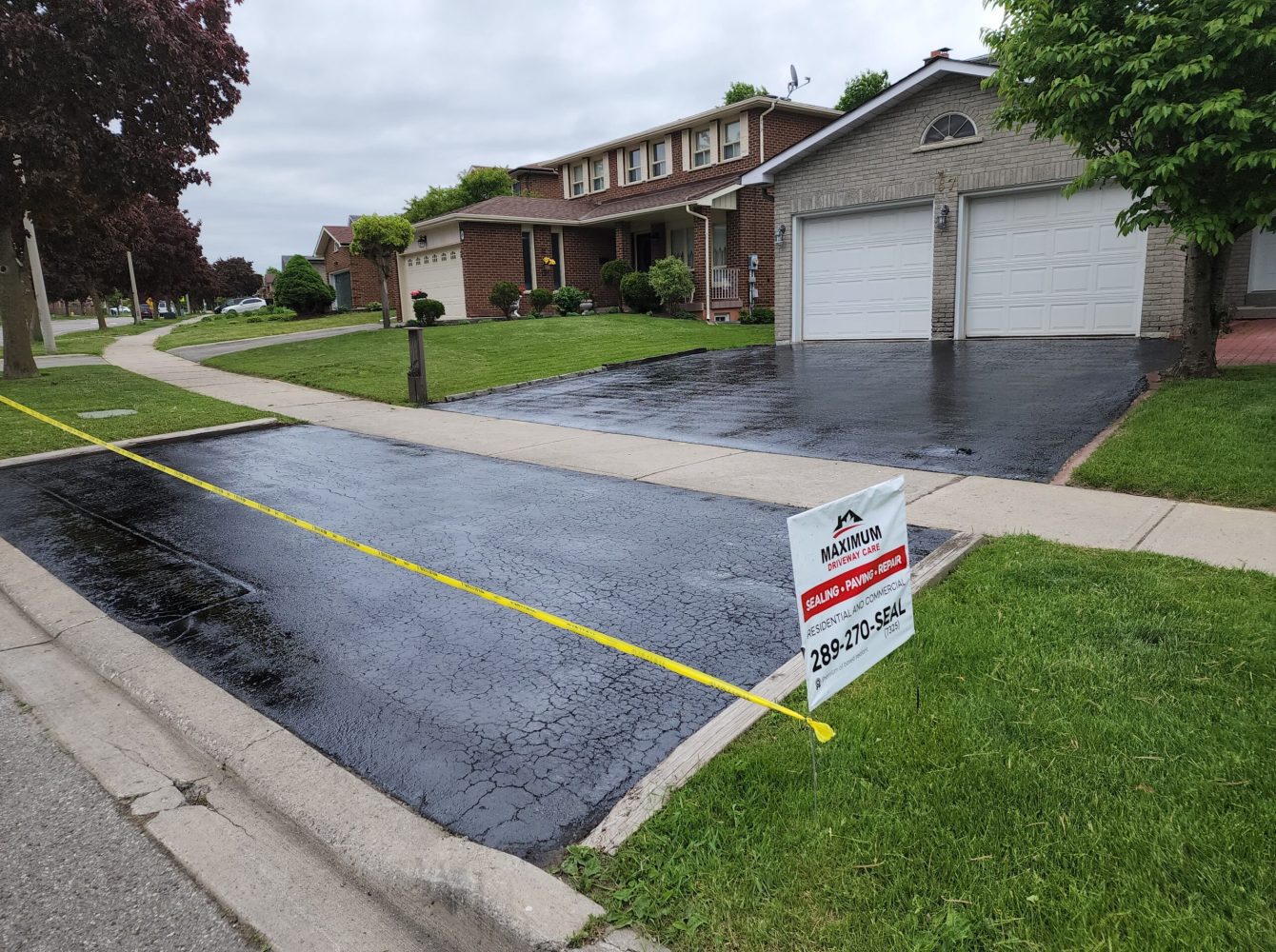Unleash the Prospective: Regrading and Asphalt Sealing for Business Spaces
Unleash the Prospective: Regrading and Asphalt Sealing for Business Spaces
Blog Article
Hot Mix Asphalt: A Sustainable Solution for Pavement
Hot Mix Asphalt (HMA) has become a leading lasting selection for sidewalk remedies, supplying a myriad of ingenious innovations and environmental benefits. Its ability to recycle materials and reduce power usage provides a compelling situation for its adoption in road construction projects. The long-term efficiency and toughness of HMA make it a preferred choice for framework advancement. As the need for green building and construction techniques grows, exploring the nuances of HMA's sustainability can supply useful understandings into the future of sidewalk services.
Environmental Advantages of Hot Mix Asphalt

Additionally, Warm Mix Asphalt assists to minimize urban warmth island effects. Its dark color soaks up sunlight, lowering the amount of warm mirrored back into the atmosphere compared to lighter-colored sidewalks. This can lower ambient temperature levels in city areas, reducing the need for a/c and inevitably reducing energy intake.
Furthermore, Hot Mix Asphalt adds to improved stormwater management. Its porous nature permits water to reenergize and penetrate the sidewalk groundwater products, reducing overflow and the danger of flooding. These ecological advantages make Warm Mix Asphalt a lasting selection for leading roadways and freeways.
Energy Effectiveness in HMA Manufacturing
Is energy efficiency a vital element in the production of Warm Mix Asphalt (HMA)? Energy plays a considerable function in the manufacturing of HMA, influencing both expense and environmental sustainability. One key facet of energy efficiency in HMA manufacturing is the usage of warm mix asphalt (WMA) innovations.
In addition, developments in plant modern technologies have led to more energy-efficient HMA manufacturing procedures. By optimizing energy use in HMA manufacturing, the market can minimize its carbon impact while preserving premium pavement products.
Recyclability of Hot Mix Asphalt
The recyclability of Warm Mix Asphalt (HMA) is a critical facet of its sustainability and long-term ecological influence. HMA is just one of the most recycled materials in the United States, with over 100 million tons of reclaimed asphalt pavement (RAP) being recycled each year in new pavement building. Recycling HMA uses numerous ecological advantages, such as reducing the requirement for virgin materials, reducing energy usage throughout manufacturing, and lowering the quantity of waste sent out to landfills.
The process of recycling HMA entails crushing the existing pavement, squashing it right into smaller items, and mixing it with new accumulation and asphalt binder to produce a recycled mix. Generally, the recyclability of HMA plays a considerable role in advertising lasting try this site methods within the pavement sector.

Long-Term Efficiency of HMA
Asphalt pavements show resilience and strength over a prolonged duration, reflecting the long-lasting performance click now of Hot Mix Asphalt (HMA) In addition, improvements in HMA technology, such as the use of polymer-modified binders and cozy mix asphalt, have even more enhanced the toughness and longevity of HMA sidewalks. By prioritizing high quality construction and upkeep practices, HMA continues to confirm itself as a cost-effective and sustainable remedy for long-lasting sidewalk facilities.

HMA: Longevity and Sustainability
Demonstrating both sturdiness and sustainability, Warm Mix Asphalt (HMA) has actually come to be a keystone in the building and construction of resilient pavement frameworks - regrading. HMA's resilience originates from its capability to hold up against heavy lots, severe climate condition, and high traffic volumes, making it a reliable option for roadways, highways, and airport terminal runways. The structure of HMA, which typically includes aggregates, binder, and filler, plays a crucial role in boosting its durability and resistance to tear and put on
Moreover, HMA's sustainability exists in its recyclability and energy-efficient production process. The capability to reuse redeemed asphalt pavement (RAP) in brand-new HMA mixtures minimizes the need for virgin products and lessens the ecological effect of pavement construction and upkeep. Additionally, the energy effectiveness of producing HMA hinges on its lower mixing see this page temperature levels contrasted to other sidewalk products, leading to reduced power consumption and greenhouse gas exhausts.
Final Thought
In final thought, warm mix asphalt (HMA) provides a sustainable service for pavement with its environmentally friendly features. HMA's recyclability, energy effectiveness in manufacturing, and lasting durability make it a green option for roadway building and construction.
HMA is one of the most recycled products in the United States, with over 100 million loads of recovered asphalt pavement (RAP) being reused every year in new sidewalk construction.The procedure of reusing HMA entails milling the existing pavement, squashing it into smaller sized items, and blending it with new accumulation and asphalt binder to create a recycled mix.Asphalt sidewalks show durability and strength over an extensive duration, mirroring the lasting efficiency of Hot Mix Asphalt (HMA) In addition, innovations in HMA technology, such as the use of polymer-modified binders and cozy mix asphalt, have even more enhanced the longevity and durability of HMA sidewalks. The ability to recycle reclaimed asphalt pavement (RAP) in brand-new HMA combinations reduces the demand for virgin products and minimizes the ecological impact of sidewalk building and construction and upkeep.
Report this page